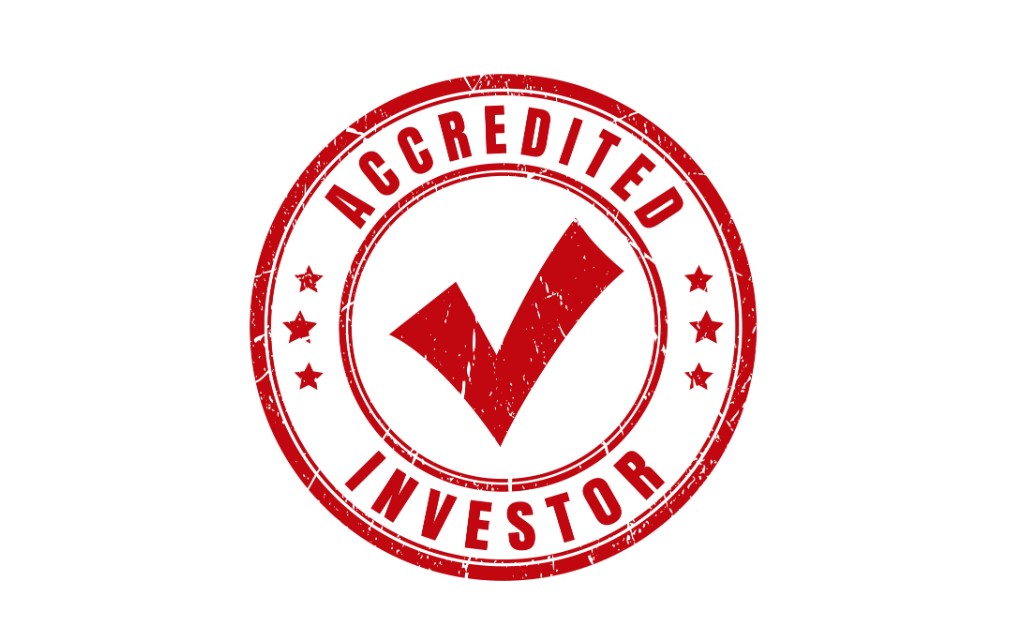All Categories
Featured
Table of Contents

It's important to understand that achieving recognized investor status is not an one-time accomplishment. People need to maintain their eligibility by meeting the continuous requirements developed by regulative bodies. Regular evaluation of income, total assets, and expert certifications is required to guarantee ongoing accreditation. It's as a result crucial for recognized capitalists to be positive in checking their financial circumstance and updating their records as necessary.
Failing to fulfill the ongoing standards might cause the loss of accredited investor standing and the linked opportunities and possibilities. While numerous of the investment kinds for Accredited Financiers are the same as those for anyone else, the specifics of these investments are often different. Private placements describe the sale of protections to a select team of certified capitalists, typically beyond the public market.
Personal equity funds pool resources from recognized financiers to acquire possession stakes in business, with the goal of enhancing performance and generating substantial returns upon departure, generally with a sale or preliminary public offering (IPO).
Market changes, residential property administration obstacles, and the prospective illiquidity of property assets ought to be very carefully reviewed. The Stocks and Exchange Commission (SEC) plays a crucial duty in managing the activities of recognized investors, who should stick to especially detailed regulations and coverage requirements. The SEC is in charge of imposing securities laws and regulations to secure investors and keep the stability of the financial markets.
Accredited Investor Syndication Deals
Guideline D provides exceptions from the registration needs for certain personal positionings and offerings. Recognized investors can join these exempt offerings, which are commonly reached a minimal number of advanced financiers. To do so, they need to offer precise info to issuers, full needed filings, and abide by the policies that govern the offering.
Conformity with AML and KYC demands is necessary to keep standing and gain accessibility to various investment chances. Failing to adhere to these policies can result in serious charges, reputational damages, and the loss of certification privileges. Let's unmask some common misunderstandings: A typical mistaken belief is that accredited financiers have actually an assured benefit in terms of financial investment returns.
Accredited Investor Syndication Deals
Yes, accredited capitalists can lose their status if they no longer meet the eligibility requirements. For instance, if a recognized investor's revenue or total assets falls below the assigned limits, they may lose their certification - accredited investor investment networks. It's important for accredited financiers to frequently analyze their financial situation and report any modifications to make sure compliance with the regulations
Some financial investment opportunities may allow non-accredited investors to take part via certain exemptions or stipulations. It's vital for non-accredited investors to carefully assess the terms and conditions of each financial investment chance to identify their eligibility. venture capital for accredited investors.
Advanced Accredited Investor Financial Growth Opportunities with Growth-Focused Strategies
If you wish to buy specific complicated investments, the Securities and Exchange Compensation (SEC) needs that you be a certified financier. To be accredited, you must fulfill particular needs concerning your riches and earnings along with your financial investment expertise. Take an appearance at the basic needs and benefits of coming to be a certified investor.
The SEC considers that, since of their financial security and/or financial investment experience, approved financiers have less demand for the defense provided by the disclosures required of managed investments. The rules for credentials, which have been in area given that the Securities Act of 1933 was developed as a reaction to the Great Depression, can be located in Guideline D, Policy 501 of that Act.
High-Growth Investment Platforms For Accredited Investors for Expanding Investment Opportunities
Nonetheless, that company can't have actually been developed simply to acquire the unregistered safeties concerned. These demands of income, web worth, or professional experience make certain that inexperienced financiers do not run the risk of cash they can not afford to shed and do not take monetary threats with investments they don't comprehend. No real certification is offered to validate your status as an approved investor.
Neither the SEC nor any type of other governing company is included in the procedure. When you seek recognized financier status, you're likely to go through a screening process. You may need to complete an initial set of questions inquiring about your investment background, revenue, and total assets. Documents you will probably have to create may include: W-2s, tax returns, and various other files confirming earnings over the previous 2 years Financial declarations and financial institution declarations to verify internet worth Credit rating reports Documentation that you hold a FINRA Collection 7, 64 or 82 designation Paperwork that you are a "well-informed employee" of the entity providing the securities The ability to spend as a "educated staff member" of a fund issuing safeties or as a financial professional holding an appropriate FINRA license is brand-new as of 2020, when the SEC expanded its meaning of and credentials for accredited capitalists.
Acclaimed Accredited Investor Investment Returns

These protections are unregistered and unregulated, so they don't have readily available the regulatory securities of registered safeties. As a whole, these investments might be particularly unstable or lug with them the potential for substantial losses. They include various organized financial investments, hedge fund investments, personal equity investments, and various other private positionings, all of which are unregulated and may bring substantial risk.
Obviously, these investments are also eye-catching because in enhancement to included threat, they carry with them the possibility for significant gains, typically greater than those offered through normal financial investments. Certified investors have readily available to them financial investments that aren't open to the basic public. These financial investments consist of exclusive equity funds, angel investments, specialty financial investments such as in hedge funds, equity crowdfunding, property investment funds, equity capital financial investments, and straight financial investments in oil and gas.
Firms using non listed securities just need to provide documents about the offering itself plus the area and policemans of the company supplying the protections (exclusive deals for accredited investors). No application process is needed (as is the case with public stock, bonds, and mutual funds), and any kind of due persistance or added info provided depends on the company
World-Class Accredited Investor Investment Funds
This information is not intended to be individual recommendations. Potential individuals must seek advice from their individual tax obligation expert concerning the applicability and effect of any type of and all benefits for their own personal tax circumstance. Furthermore, tax laws transform periodically and there is no guarantee concerning the analysis of any tax obligation regulations.
Approved capitalists (in some cases called competent financiers) have access to financial investments that aren't readily available to the basic public. These investments might be hedge funds, hard cash finances, exchangeable investments, or any kind of other safety and security that isn't registered with the monetary authorities. In this short article, we're going to focus especially on actual estate investment choices for certified capitalists.
Latest Posts
Homes Foreclosed Due To Back Taxes
Tax Lien Investing For Dummies
Investing In Secured Tax Lien Certificates